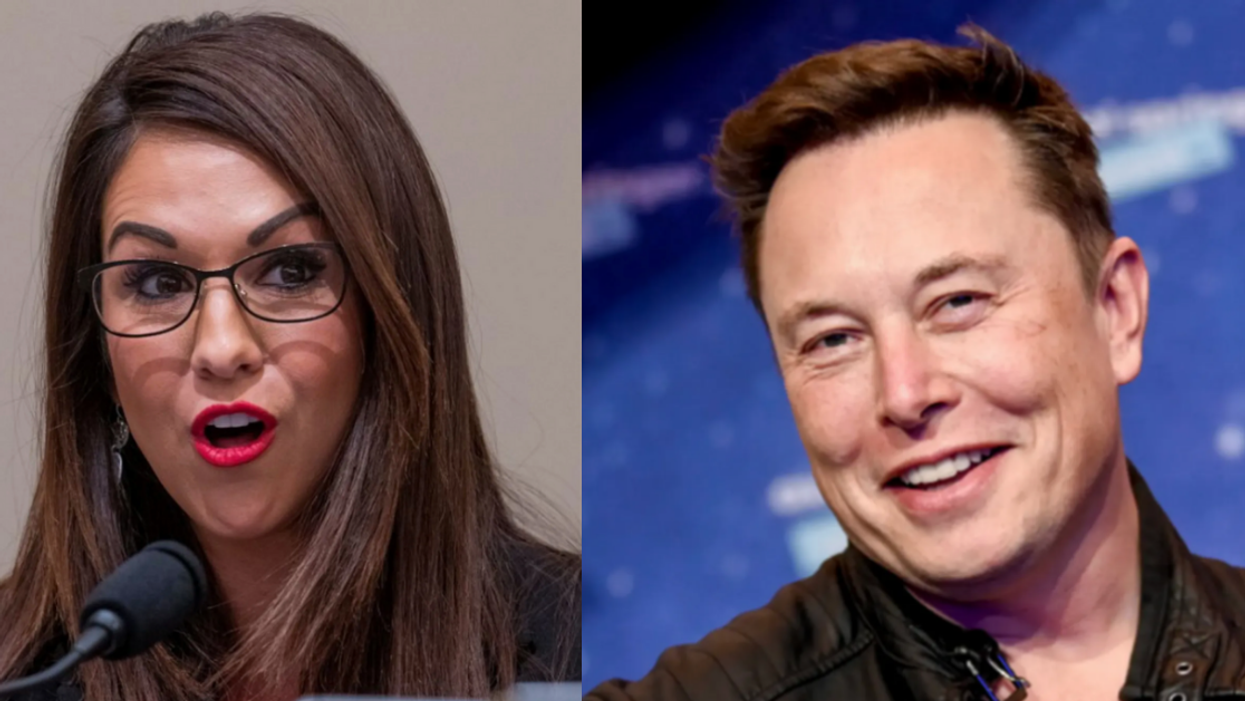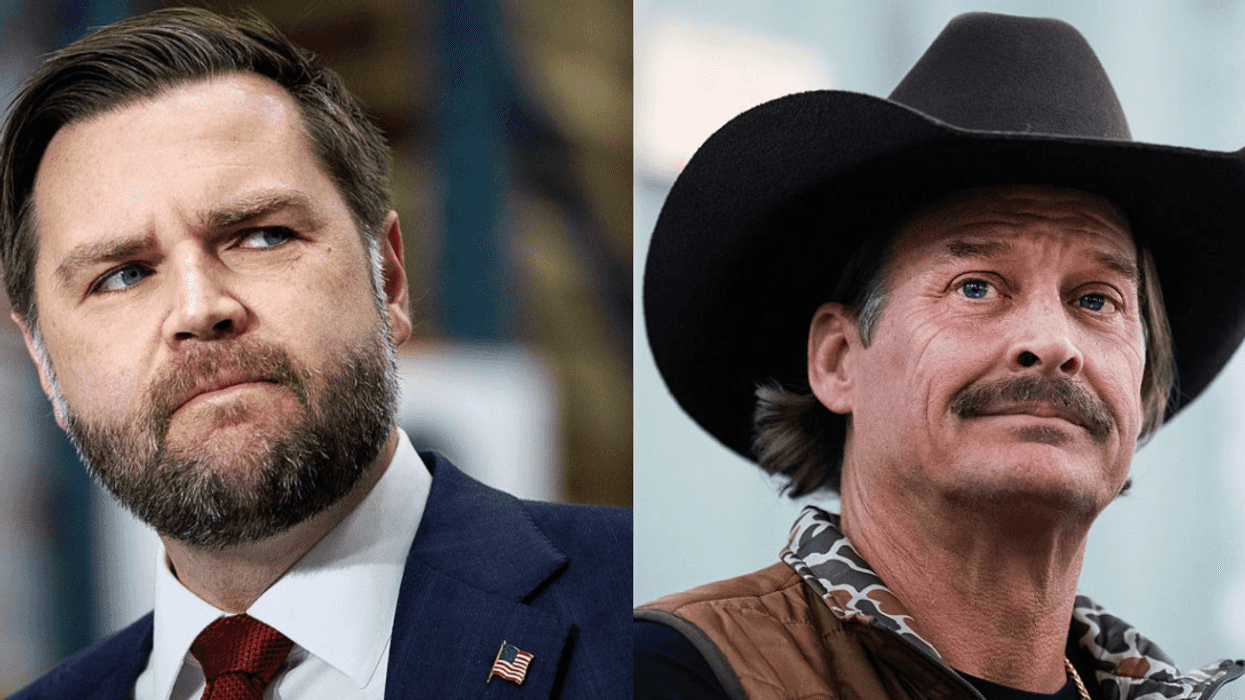Colorado Republican Representative Lauren Boebert was criticized after she claimed "leftists" opposed to billionaire Elon Musk's recent move to buy Twitter only want "censorship."
While Musk's buyout was cheered by conservatives, it sparked concern from others—especially civil rights groups—who said that having one person have so much centralized power over political discourse online poses a significant threat to democracy.
Musk batted away these criticisms, saying his opponents are experiencing an "extreme antibody reaction" because they "fear free speech."
And Boebert agreed, claiming Musk's opponents not only want to censor him but that "Their ideas don't hold up in debate."
Musk has continued to allege Twitter's algorithms are biased and conservatives have applauded his buyout as a win for free speech, which Boebert has often claimed is threatened on the social media platform, thereby constituting a First Amendment violation.
However, these claims do not hold up under scrutiny.
The First Amendment applies only to governmental action and does not apply to behavior by private employers, private companies, or private, non-government individuals unless they worked in concert with the government.
Ironically, Boebert's Twitter activities have occasionally violated the First Amendment given she has previously blocked her constituents and was sued because she cannot legally block anyone who finds any of her tweets objectionable.
In 2019, the Fourth Circuit Court of Appeals ruled online pages used by public figures to connect with their constituents are public forums, which means an official cannot block people from them because of the opinions they hold.
Boebert's tweet garnered significant attention.
Her claims were swiftly criticized by those who pointed out Republicans have recently ramped up a campaign to ban books and limit what subjects teachers can teach in their classrooms.
Earlier this week, the Twitter board of directors agreed to a $44 billion buyout by Musk, potentially making it one of the biggest deals to turn a company private.
Twitter previously acknowledged it had received Musk's bid, which comes out to $54.20 a share. The company confirmed in a press release its board of directors received the offer and would "carefully review the proposal to determine the course of action that it believes is in the best interest of the Company and all Twitter stockholders."
Rumors of a buyout began to circulate earlier this month after Musk disclosed a 9.2 percent stake in Twitter made him the company's largest shareholder. Prominent conservatives appeared emboldened by the news, particularly because Musk had questioned Twitter's content moderation rules in the days before his disclosure.
At the time, there was significant speculation Musk would join Twitter's board of directors, a move that would potentially broaden his influence over the platform and its policies.
Republicans, spurred by former President Donald Trump, have often accused Twitter of limiting prominent conservative voices on its platform.
In 2018, while still in office, Trump claimed Twitter was "SHADOW BANNING prominent Republicans" in response to a news story that alleged accounts owned by Republicans were showing up in a general search of the website but not automatically populating when typing their names in the drop-down bar.
Twitter later issued a response, attributing the issue to a platform bug.








 Roberto Schmidt/AFP via Getty Images
Roberto Schmidt/AFP via Getty Images





 u/pizzaratsfriend/Reddit
u/pizzaratsfriend/Reddit u/Flat_Valuable650/Reddit
u/Flat_Valuable650/Reddit u/ReadyCauliflower8/Reddit
u/ReadyCauliflower8/Reddit u/RealBettyWhite69/Reddit
u/RealBettyWhite69/Reddit u/invisibleshadowalker/Reddit
u/invisibleshadowalker/Reddit u/Wishnik6502/Reddit
u/Wishnik6502/Reddit u/kateastrophic/Reddit
u/kateastrophic/Reddit u/blking/Reddit
u/blking/Reddit u/SlagQueen/Reddit
u/SlagQueen/Reddit u/geezeslice333/Reddit
u/geezeslice333/Reddit u/meertaoxo/Reddit
u/meertaoxo/Reddit u/crystal_clear24/Reddit
u/crystal_clear24/Reddit u/stinkpot_jamjar/Reddit
u/stinkpot_jamjar/Reddit
 u/Bulgingpants/Reddit
u/Bulgingpants/Reddit
 @hackedliving/TikTok
@hackedliving/TikTok @hackedliving/TikTok
@hackedliving/TikTok @hackedliving/TikTok
@hackedliving/TikTok @hackedliving/TikTok
@hackedliving/TikTok @hackedliving/TikTok
@hackedliving/TikTok @hackedliving/TikTok
@hackedliving/TikTok @hackedliving/TikTok
@hackedliving/TikTok @hackedliving/TikTok
@hackedliving/TikTok @hackedliving/TikTok
@hackedliving/TikTok @hackedliving/TikTok
@hackedliving/TikTok
 @vanderjames/Instagram
@vanderjames/Instagram @vanderjames/Instagram
@vanderjames/Instagram @vanderjames/Instagram
@vanderjames/Instagram @vanderjames/Instagram
@vanderjames/Instagram @vanderjames/Instagram
@vanderjames/Instagram @vanderjames/Instagram
@vanderjames/Instagram @vanderjames/Instagram
@vanderjames/Instagram @vanderjames/Instagram
@vanderjames/Instagram @vanderjames/Instagram
@vanderjames/Instagram @vanderjames/Instagram
@vanderjames/Instagram